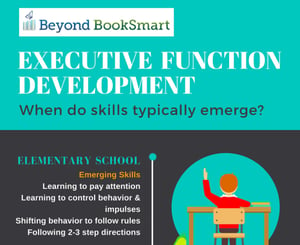“But I don’t want to go to bed!” Pretty much every parent has heard these  words, or some variation, as early as...well, my three-year old says it, so let’s go with that. Usually one more story suffices at this age, but as children get older, the pleas often become more difficult to navigate.
words, or some variation, as early as...well, my three-year old says it, so let’s go with that. Usually one more story suffices at this age, but as children get older, the pleas often become more difficult to navigate.
Why? Sometimes kids are just not tired yet (so they say) or they want to do something productive, like read a bit more or finish homework. Perhaps more common - especially with middle through high schoolers - are the usually-not-so-productive things, such as phone calls and screen time.
Healthy routines around a fixed bedtime (and wake time) are critical for success in all sorts of ways, especially as kids approach the college years. The reasons for good quality and quantity of sleep are pretty well known in childhood, tween, and teen development: physical growth, immune system protection, and overall behavior are affected when there are sleep deficits.
Let’s break down the behavior factor in greater detail.
Sleep and Executive Function
Every parent can reflect pretty easily on their own behavior when sleep is less than ideal: concentration can be iffy, moods can be grumpy or short-tempered, and there is little energy to deal with everyday stressors, let alone acute problems (like sleep deprived kids). In other words, poor sleep can throw a wrench into Executive Function, a catch-all term for the combination of attention, planning, prioritization, time management, organization, and emotional/behavioral regulation that promote healthy coping skills. And if parents can see the impact of poor sleep on their own functioning with their fully developed adult brains, you can just imagine how inadequate sleep affects children’s thinking.
Executive Functioning can be affected by poor sleep to a more extreme degree for the developing brains of kids, especially in academic, social, and personal/self-care areas. Let’s call these areas collectively “holistic wellness.” As kids get older, there are more demands on “holistic wellness” and navigating them often becomes more complicated. This can be especially challenging because the pre-frontal areas of the brain continue to develop into early adulthood, such that “holistic wellness” demands may not (yet) align with actual brain development, even in children without Executive Function challenges. Further, research on sleep and Executive Function suggests that children with Executive Functioning challenges may be particularly vulnerable to the impact of sleep deprivation, making it more difficult to improve attention, self-regulation, and school performance. In summary, normal brain development plus Executive Function challenges plus sleep issues often equal a triple whammy of concerns.
High School Schedules Can Shortchange Sleep
In high school, student schedules can be intense: early school start times that may not align with typical adolescent sleep/wake cycles (many school districts are having conversations about this and some have made changes), AP/Honors projects, clubs, rehearsals, practices, religious school, jobs, college entrance process, etc. I remember my own experience of waking up at 5:30am, attending rehearsal before 7am and then again after school until 4pm, napping when I arrived home, and then eating dinner, doing homework, and talking on the phone until 10pm (when my dad would interrupt my call and abruptly end it so, in theory, I would go to sleep). In hindsight, I was good at managing my time and was high-achieving with “holistic wellness.” But today’s high school students have activities and technology I did not have, so now there are even more barriers to adequate rest than most adults had as kids.
Transition to College: The Perfect Storm of Sleep Deficits
In the transition to college, sleep as a critical part of “holistic wellness” can be at even more risk, as it often gets shortchanged when students are adjusting to college life. College presents the perfect storm of getting used to new academic rigor, creating and maintaining social connections, engaging in co-curricular activities, and holding down part-time jobs - let alone having to get out of bed and attend class on time without parental assistance.
A first-year college student I worked with disclosed she typically does homework until 2am because she volunteers for two campus community partnerships that run from when classes end until late evening - and attends her first class at 8am. In my conversations with her, I learned that she is on a pre-med path and that grades are super important to her. I asked her about her stress level and then I handed her a sleep hygiene tip sheet. After looking it over for about a minute, she handed it back to me, saying “I don’t do any of these.” That allowed us to go deeper into discussing her stress level, current schedule, goals, and if everything could be sustained over the long-haul of the semester, let alone her college career and application to medical school. While she was open to thinking about the ways in which she was overextending herself, she wasn't quite ready to dive in and suddenly follow each sleep hygiene tip.
This reluctance to change behavior is pretty normal, as most college students need to experience a natural negative consequence (e.g., sleeping through an exam) before awareness turns into trying out new strategies. But too many negative consequences can quickly snowball into falling behind with “holistic wellness,” which then can lead to significant mental health issues, academic probation, risk of discontinuing college, and so on.
Strategies for Sleep Success
Avoid the snowball. Help your child establish healthy sleep habits early. Some ideas to get started:
- If change needs to happen, try adjusting sleep or wake times by 20 minutes every week until you find the right timing. Then stick with it. Even on weekends.
- Consider your child’s activities and commitments for time management and sleep schedule. It may be better to “go deep” in one or two areas of interest rather than “go wide” with many obligations where participation is surface-level.
- Encourage exercise that gets the heart rate up, which promotes sleep (avoid 4 hours before bedtime). Meditation and yoga can also help.
- Set a strict rule about screen time before bedtime.
- Let special events be special. Most older teens can be resilient when sleep is not ideal once in a while (e.g., prom, concerts), but try to limit to once a month.
- Check out other sleep hygiene tips online.
- Talk to your child’s doctor if you have specific concerns.
It helps when we, as parents, practice what we preach about sleep so we can function well for our kids and ourselves. Perhaps the 5Bs I use with my three-year-old may be helpful for all of us: Bath, Brush teeth, Book, Blanket, and Bed.
Photo by Agus Miftah on Unsplash
 Download our infographic that describes a timeline of typical Executive Function skill development from elementary school through adulthood.
Download our infographic that describes a timeline of typical Executive Function skill development from elementary school through adulthood.

